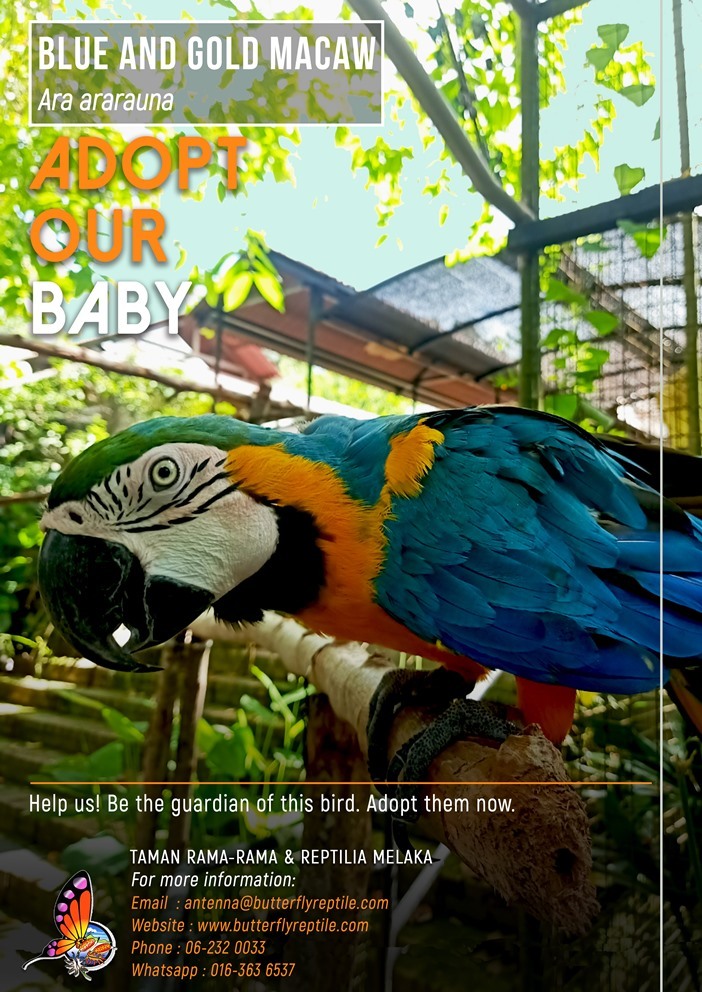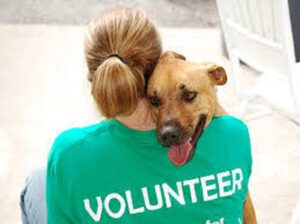When you open your heart and home to a Blue and Gold Macaw, you’re not just getting a pet; you’re gaining a vibrant member of your family for potentially the next several decades. These magnificent birds are known for their striking colors, intelligent minds, and charismatic personalities. But, adopting one is a decision that shouldn’t be taken lightly. Let’s embark on a journey to understand what it truly means to welcome a Blue and Gold Macaw into your life.
Key Takeaways
-
Expect to pay anywhere from $1,000 to $3,000 for a Blue and Gold Macaw, depending on the source.
-
Blue and Gold Macaws are known for their loud vocalizations; they’re not suitable for quiet living spaces.
-
These birds are social creatures that require plenty of interaction, making them great family pets under the right circumstances.
-
Blue and Gold Macaws have a long lifespan, often living up to 50 years or more in captivity with proper care.
-
Adopting a Blue and Gold Macaw involves significant upfront costs for a proper cage and ongoing expenses for their dietary and healthcare needs.
Initial Costs to Consider
Before you even start looking for a Blue and Gold Macaw to adopt, it’s essential to understand the financial commitment you’re about to make. The initial costs include more than just the adoption fee; you’ll need to consider the setup of a suitable habitat, toys for enrichment, and the first vet visit, among other things.
Adoption Fees and Where to Find Your Macaw
Adoption fees for a Blue and Gold Macaw can vary widely. If you’re adopting from a rescue or sanctuary, the fee may be lower, around $1,000, which often includes the bird’s medical examinations and any necessary rehabilitation. Purchasing from a breeder might cost you more, typically between $2,000 and $3,000, but this often ensures a younger bird and more thorough background information on its health and genetics.
Where to find your new feathered companion? You can start with local avian rescues, bird sanctuaries, or reputable breeders. Online resources like Petfinder or the Association of Avian Rescue (AAR) can also be helpful in locating Blue and Gold Macaws in need of homes.
Cage and Habitat Essentials
One of the most significant initial investments will be the cage. Blue and Gold Macaws are large birds that require spacious enclosures for both comfort and health. A proper cage should be at least 2 feet by 3 feet and 4 feet tall, but the bigger, the better. Expect to pay between $500 to $1,500 for a sturdy, high-quality cage. Additionally, you’ll need:
-
Perches of varying diameters to promote foot health
-
Durable toys for mental stimulation
-
Food and water dishes
Remember, creating a stimulating environment is crucial for your Macaw’s well-being. Therefore, besides the cage, you’ll also want to budget for play stands, ladders, and a variety of toys. These items can add an additional few hundred dollars to your initial costs.
Regular Health Care Expenses
Just like any other pet, Blue and Gold Macaws require regular veterinary care to stay healthy. Initial health care expenses will include a wellness check-up, vaccinations if necessary, and potential costs for microchipping and DNA sexing, which can add up to a few hundred dollars. Set aside a budget for yearly check-ups and unexpected health issues as well.

“Adopt Our Baby (Blue and Gold Macaw …” from www.butterflyreptile.com and used with no modifications.
Understanding Your Macaw’s Behavior
Blue and Gold Macaws are not just a spectacle of colors; they are also a whirlwind of activity with distinct personalities. Understanding their behavior is critical to forming a strong bond and ensuring a harmonious relationship. These birds are highly intelligent and require constant mental stimulation to stay happy. Without it, they can develop behavioral issues, such as feather plucking or excessive screaming. Learn more about exotic breed mixes and their behaviors to ensure you can provide the best care for your pet.
The Reality of Living with a Vocal Bird
One of the hallmarks of a Blue and Gold Macaw is its powerful voice. These birds are natural communicators in the wild, using their calls to make their presence known over long distances. In a home setting, this translates to loud vocalizations, which can include talking, singing, and sometimes screaming. It’s important to understand that while training can help manage excessive noise, it’s part of their natural behavior and cannot be eliminated entirely.
“A Blue and Gold Macaw’s call can be heard up to five miles away in the wild. In your living room, it’s not just loud, it’s a conversation starter with your neighbors – whether you wanted one or not!”
These vocalizations are often more frequent during the morning and evening, which can be a challenge if you’re not an early riser or if you prefer quiet evenings. Patience and training can help establish a routine that works for both you and your macaw.
Managing The Mess: Cleaning Tips
Let’s be clear: Macaws are messy. Their strong beaks make short work of toys, and they often throw food or shred paper, creating a bit of a mess around their cage. To keep your home clean and hygienic, regular cleaning is a must. Here are some tips:
-
Place a washable mat or linoleum sheet under the cage to catch stray food and droppings.
-
Invest in a good quality vacuum cleaner for daily cleanup around the cage.
-
Provide a designated play area where it’s okay for your macaw to be messy.
Weekly cage cleaning is also essential. You’ll need to wash and disinfect the cage, change liners, and wash all food and water dishes. It’s a commitment, but it’s crucial for your bird’s health and your own.
Are Macaws Good Family Pets?
Blue and Gold Macaws can be wonderful family pets if you have the right environment. They thrive on social interaction and can form strong bonds with multiple family members. However, they do best in homes where there is someone available for most of the day. If left alone for too long, they can become lonely and exhibit signs of stress.
Temperament and Social Requirements
These birds have a reputation for being affectionate and sociable. They love to be part of the family activities and will often seek out attention. It’s not uncommon for a macaw to prefer cuddling on the couch with their human companions over playing with their toys. Here’s what you need to provide:
-
At least 2 to 3 hours of direct interaction every day.
-
Regular out-of-cage time in a safe, bird-proofed environment.
-
Training sessions to keep their minds active and engaged.
Remember, a bored macaw is often a loud macaw. Keeping them engaged and feeling like a part of the family is key to maintaining a peaceful household.
Interaction and Training Need-to-Knows
Training your Blue and Gold Macaw is not just about teaching tricks; it’s about communication and mutual respect. Positive reinforcement techniques work best. Start with simple commands and gradually move to more complex tasks. Training sessions are also a great way to strengthen your bond and provide the mental stimulation these intelligent birds crave.
Keep in mind that macaws are sensitive to their owner’s emotions and can become stressed or agitated if there’s tension in the home. Consistency, patience, and a calm demeanor are crucial when interacting with your macaw.
The Longevity of Blue and Gold Macaws
One of the most significant considerations when adopting a Blue and Gold Macaw is their lifespan. With proper care, these birds can live for 50 years or more. This means adopting a macaw is a commitment for the long haul – they’re likely to be with you for a significant portion of your life.
Proper nutrition is key to a long and healthy life for your macaw. A balanced diet consisting of high-quality pellets, fresh fruits and vegetables, and occasional nuts and seeds is essential. Regular veterinary check-ups, including screenings for common avian diseases, are also a must to ensure your macaw remains in tip-top shape.
Understanding that your macaw’s needs will change as they age is also important. Senior macaws may require different nutrition, more frequent health checks, and adjustments to their living environment to accommodate any mobility issues.
FAQs
How much can I expect to spend on a Blue and Gold Macaw?
When you’re considering the adoption of a Blue and Gold Macaw, prepare for an initial investment that typically ranges from $1,000 to $3,000. This cost can fluctuate based on whether you adopt from a rescue or purchase from a breeder. Keep in mind, this price tag only covers the bird itself. You’ll also need to factor in the cost of a suitable cage, accessories, food, and veterinary care, which can easily add hundreds or even thousands of dollars to your initial expenses.
Is a Blue and Gold Macaw a suitable pet for families with kids?
Blue and Gold Macaws can be excellent family pets if they’re introduced into a loving, patient, and interactive environment. They do well with children who understand the importance of gentle handling and respect for the bird’s space. It’s crucial to supervise interactions between children and the macaw to ensure the safety of both. Remember, these birds thrive on social interaction and can form deep bonds with all family members when treated with kindness and consistency.
How noisy are Blue and Gold Macaws? Can I live with it in an apartment?
Blue and Gold Macaws are renowned for their loud calls, which can be challenging in an apartment setting. They are not just capable of loud squawks but can also mimic sounds and speech at high volumes. This can lead to issues with neighbors and may violate noise restrictions in apartment complexes. If you live in an apartment, consider the acoustics and the proximity of your neighbors before deciding to adopt a macaw.
What should I feed my Blue and Gold Macaw?
A Blue and Gold Macaw’s diet should be as colorful and varied as their personality. A balanced diet includes:
-
High-quality pellets formulated for macaws
-
A variety of fresh fruits and vegetables
-
Occasional nuts and seeds as treats
Always ensure fresh water is available, and avoid foods that are toxic to birds, such as avocado, chocolate, and caffeine. Consult with an avian vet for a diet tailored to your macaw’s specific needs.
How can I find a reputable Blue and Gold Macaw breeder or adoption center?
Finding a reputable source for your Blue and Gold Macaw is crucial. Start by researching local avian rescues and sanctuaries, as these organizations often have birds that need homes and can provide valuable background information about their care. If you’re looking at breeders, ensure they practice ethical breeding and have a transparent health history for their birds. Online resources like the Association of Avian Rescue (AAR) and Petfinder can also be helpful in finding a reputable adoption center or breeder.
In conclusion, adopting a Blue and Gold Macaw is a substantial commitment that should be approached with a full understanding of the responsibilities involved. From the financial investment to the daily care and social needs, these birds require dedicated owners who are prepared for a long-term relationship. With the right preparation and mindset, adopting a Blue and Gold Macaw can be an incredibly rewarding experience that brings joy and color into your life for many years to come.


